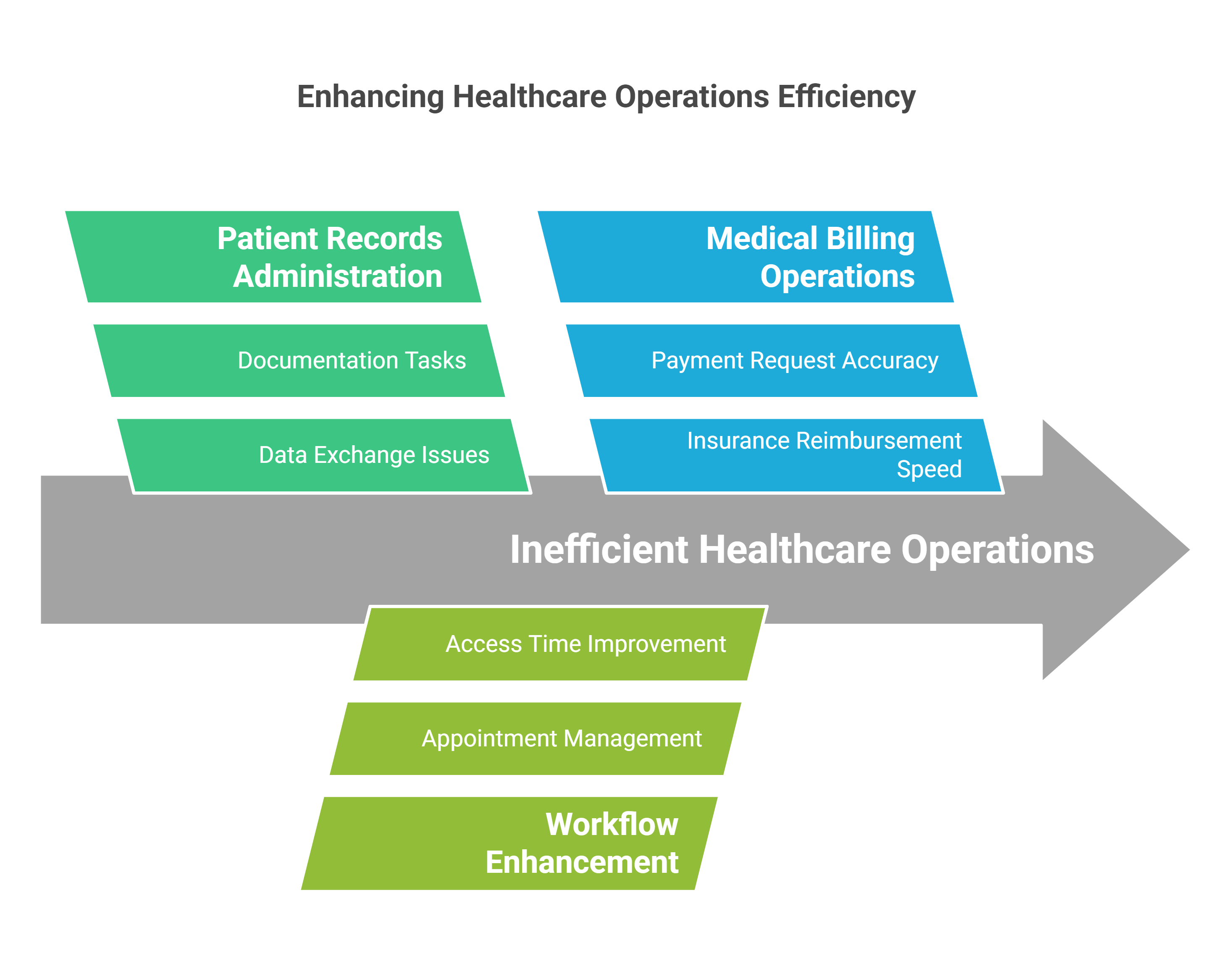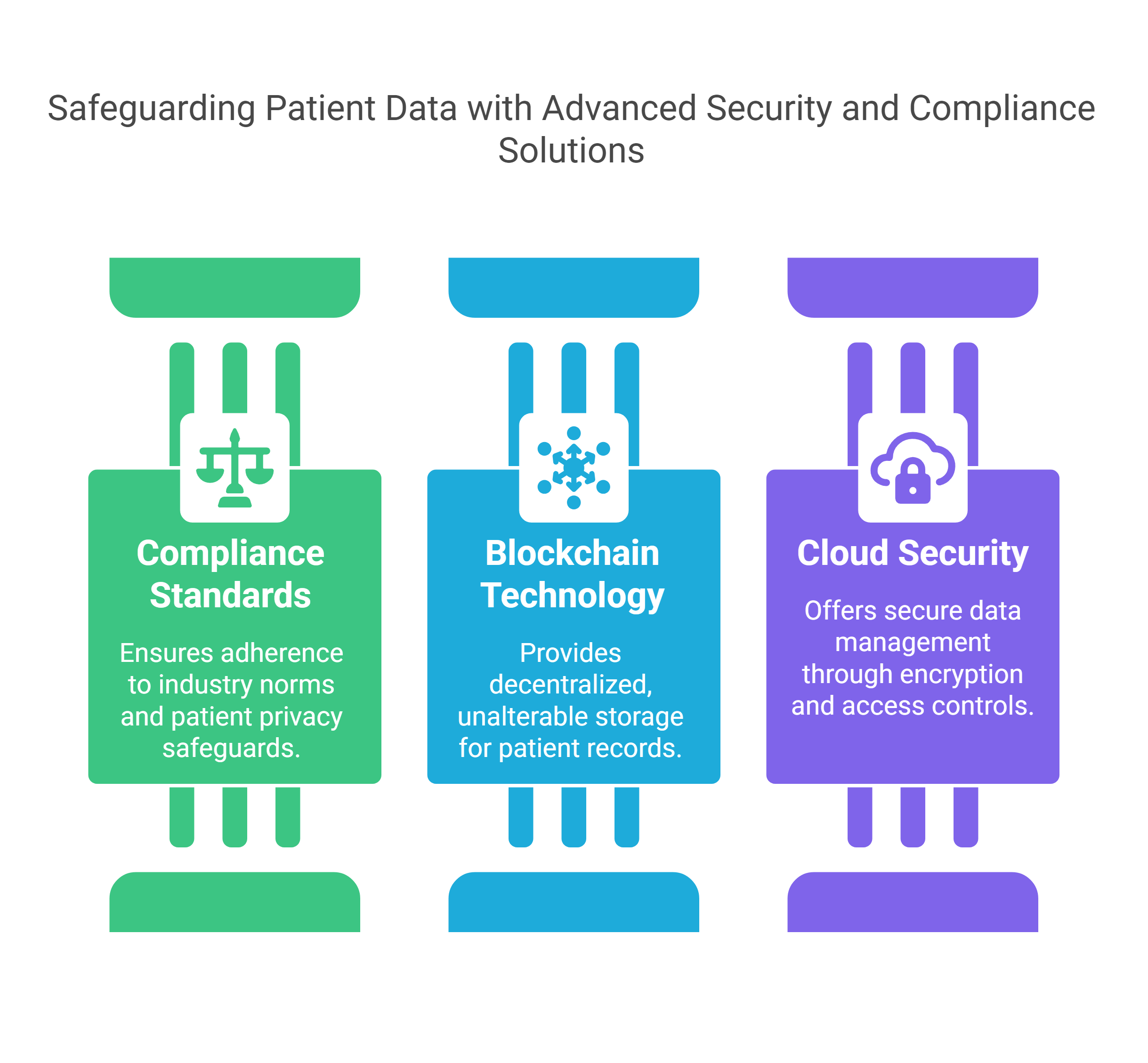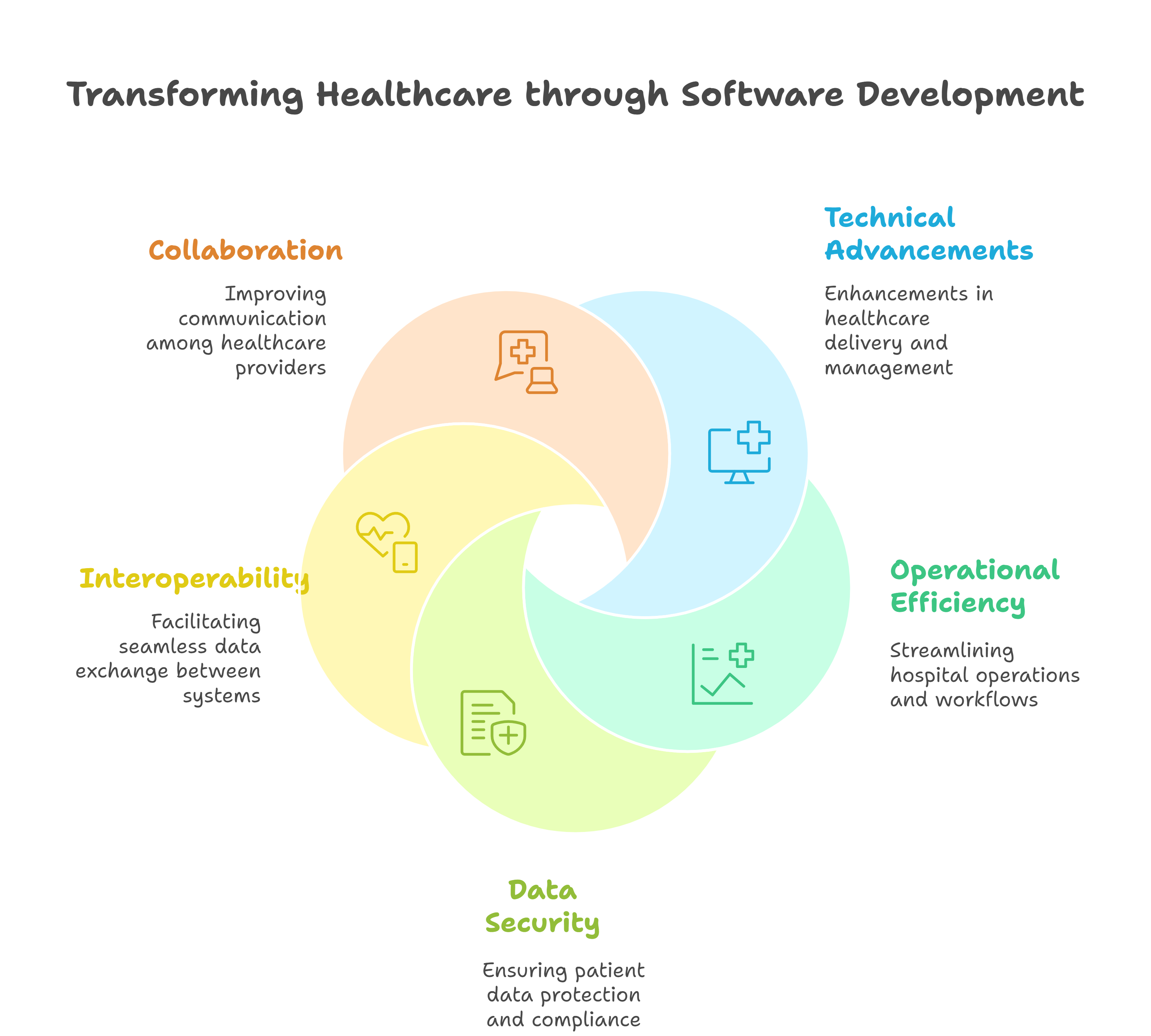Healthcare went through significant transformation due to technological advancements which took place during recent times. Healthcare system transformations together with patient care improvements and operational efficiency enhancement amount to the primary benefits software development provides. Healthcare providers currently benefit from software solutions which transform medical services by using EHRs and AI capabilities to drive diagnostic procedures.
1. Technical advancements under healthcare software development improve both healthcare delivery and operational management
Healthcare software development makes substantial contributions by enhancing the quality of patient medical assistance. Through healthcare software applications, doctor-patient meetings grow simpler while personalized care plans become manageable via remote healthcare monitoring capabilities. The principal healthcare innovations include:
Telemedicine Platforms allow patients to interface with doctors through any location thereby improving healthcare service accessibility.
The use of mobile health applications by patients allows them to track their health measurements while booking appointments and receiving appointment notification alerts. Artificial intelligence algorithms help doctors make early disease identifications because they utilize machine learning techniques to boost diagnostic precision.
2. Simplifying Healthcare Operations
Healthcare facilities and hospitals encounter multiple sophisticated operational issues, which involve patient records administration, workflow enhancement and medical billing operations. Tailor-made software solutions assist in:
Electronic Health Records offer seamless data exchange between medical providers who use them so healthcare practices become more efficient and decrease documentation tasks.
Automated Scheduling Systems help healthcare facilities and clinics to operate appointments better and to improve access times while controlling patient nonattendance.
Medical facilities benefit from automated billing systems that submit payment requests correctly and thus speed up insurance company reimbursements.

3. Data Security & Compliance
Safety of sensitive patient data emerges as a primary focus because healthcare continues its digital transformation. Electronic systems development services integrate the following core elements:
The compliance standards of healthcare applications include industry norm adherence together with patient privacy safeguards.
Blockchain technology ensures data security because it features decentralized record storage which maintains unalterable patient records.
The cloud enables secure management through encryption together with access controls for vast amounts of healthcare data storage.

4. The healthcare software advances medical study together with medication development processes
Healthcare software functions as a key driver to speed up the entire process of medical research as well as drug discovery. Research operations experience speedup through AI-enabled analytics and big data analytics solutions which provide the following capabilities:
The evaluation of healthcare information reveals significant patterns which help enhance disease prevention with better treatment results.
Real-time data collection through Clinical Trials Management allows for streamlined operations in medical trials.
A predictive analytics system allows better decisions because it helps forecast diseases and patient results.
5. Improving Interoperability & Collaboration
Various healthcare providers face difficulty when trying to connect fragmented health data systems. Organizations that use software development services overcome these issues through their capabilities.
Interoperability Solutions – Facilitate data exchange between hospitals, laboratories, and pharmacies.
Cloud-Based Collaboration Platforms create a system which enables healthcare professionals to view vital patient information in real-time.
IoT Integration – Connect wearable devices, remote monitoring tools, and medical equipment for continuous patient monitoring.
Due to software development services, the healthcare industry experiences revolution because they provide better patient care while improving functions and protecting data and facilitating medical research. Healthcare providers must integrate digital solutions into practice to provide high-quality care because technology continues to generate rapid industry changes. Healthcare success through the future will depend completely on innovative strategies where software development plays an active role in its ongoing transformation.
